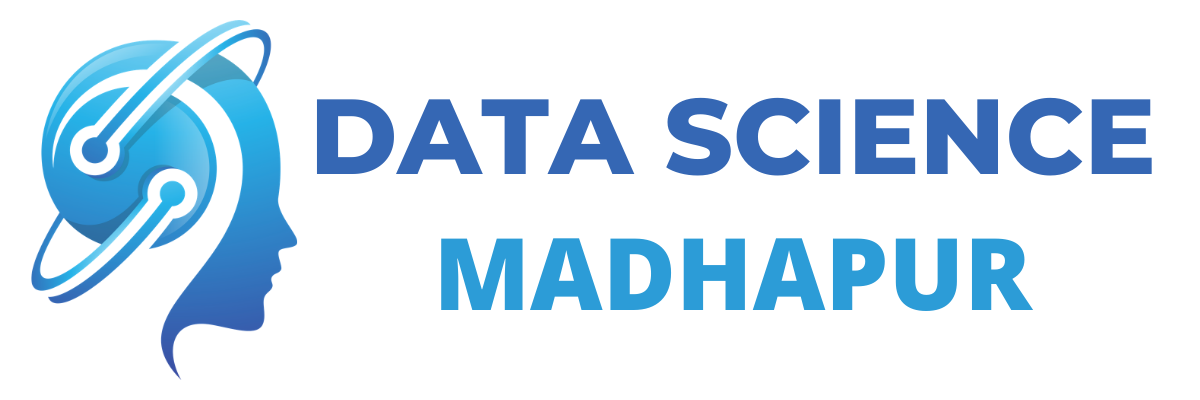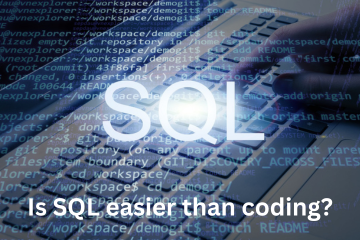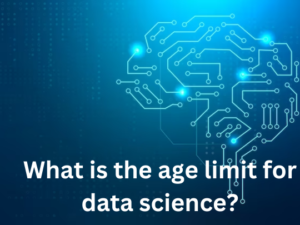The question of whether SQL is easier than coding depends on several factors and personal preferences. Here are a few points to consider:
Purpose: SQL (Structured Query Language) is primarily used for managing and manipulating relational databases. It focuses on querying and manipulating data stored in databases. On the other hand, “coding” is a more general term that encompasses various programming languages and tasks, such as software development, web development, scripting, and more. The complexity of coding can vary depending on the language and the specific task at hand.
Being a Data science is just a step away. Check out the Best Data Science in Hyderabad. Get trained by the alumni from IIT, IIM, and ISB.
Syntax and Structure:
SQL has a specific syntax and structure designed for working with databases. It has a declarative nature, meaning you specify what you want to achieve, and the database engine takes care of the how. Compared to some programming languages, the syntax of SQL can be relatively straightforward and easier to grasp for beginners.
Learning Curve: Learning SQL basics can be relatively easier compared to learning a programming language, especially if you are primarily focused on querying and managing databases. SQL has a limited set of commands and functions specifically tailored for working with databases. However, becoming proficient in advanced SQL techniques and optimizing queries can still require time and practice.
Problem Domain: The complexity of SQL or coding also depends on the problem domain and the specific tasks you are trying to accomplish. If your work revolves around data analysis, reporting, or database management, SQL may be more straightforward and sufficient. However, if you need to build complex algorithms, develop applications, or work on other programming-intensive tasks, coding in a specific language may be more challenging.
Personal Preferences: Some individuals may find SQL easier to understand and work with, while others may prefer the flexibility and expressive power of general-purpose programming languages. It ultimately depends on your background, interests, and the specific tasks you need to accomplish.
360DigiTMG offers the Best Data Science in Pune. To start a career in Data Science. Enroll now!
Tooling and Support:
SQL benefits from a wide range of mature and user-friendly tools and frameworks that make it easier to work with databases. Many database management systems provide graphical interfaces and query builders that allow users to interact with databases without needing to write complex SQL statements manually. Additionally, SQL has extensive documentation, online resources, and active communities that provide support and assistance when needed.
Abstraction Level: SQL operates at a higher level of abstraction compared to low-level programming languages. It provides a more declarative approach where you specify what you want to achieve, rather than focusing on the detailed steps or algorithms to achieve the desired outcome. This can make SQL more accessible to individuals who prefer a more intuitive and less detailed approach.
Learn the core concepts of Data Science Course video on Youtube:
Flexibility and Extensibility: While SQL is well-suited for working with relational databases, it may not be as versatile when it comes to other programming tasks. General-purpose programming languages offer more flexibility and can be used for a wide range of applications, including web development, mobile app development, machine learning, and more. If your tasks involve building complex systems or applications that go beyond database operations, coding in a specific programming language may be necessary.
Context and Integration: SQL is often used in conjunction with other programming languages. It’s common for applications to have both a database layer where SQL is used for data storage and retrieval, and a programming layer where code is written to handle business logic and application behaviour. Having a good understanding of SQL and how it integrates with other programming languages can be beneficial in such scenarios.
Error Handling and Debugging:
SQL and coding differ in how they handle errors and debugging. In SQL, errors are typically encountered when executing queries or working with the database. The error messages can sometimes be cryptic and require careful analysis to identify and resolve the issue. In coding, errors can occur at various stages, including syntax errors, logical errors, or runtime exceptions. Debugging code often involves stepping through the code, inspecting variables, and using tools to identify and fix issues. The debugging process in coding may require a deeper understanding of the programming language and development tools.
360DigiTMG offers the Best Data Science in Chennai. To start a career in Data Science. Enroll now!
Complexity of Tasks: The complexity of tasks can vary in both SQL and coding. SQL is specifically designed for database-related tasks, such as retrieving, modifying, and organizing data. It excels at handling large amounts of structured data efficiently. Coding, on the other hand, offers a broader range of possibilities, allowing you to build complex algorithms, design user interfaces, and develop applications that interact with multiple systems. Depending on the complexity of the task, coding may require a deeper understanding of algorithms, data structures, and software engineering principles.
Evolving Landscape:
Both SQL and coding are subject to continuous evolution and improvement. New features, enhancements, and best practices are introduced regularly. Staying up-to-date with the latest advancements in either SQL or coding requires ongoing learning and practice. It’s important to invest time in continuous learning to stay relevant and take advantage of the latest tools and techniques.
Application Domain: The domain in which you work or the industry you’re in may influence whether SQL or coding is considered easier. For example, if you work primarily with data analytics, data engineering, or database administration, SQL skills are often highly valuable and may be considered easier to acquire. Conversely, if you work in software development, web development, or other programming-intensive fields, coding skills may be more essential.
Scalability and Performance:
SQL is designed to efficiently handle and manipulate large datasets within a relational database. It offers optimized query execution plans and indexing techniques to enhance performance. However, when it comes to highly complex operations or scenarios that require massive scalability, coding may provide more flexibility. Programming languages allow you to write custom algorithms and optimize code specifically for your application’s needs, which can be crucial for performance-critical tasks.
Data Science is a promising career option. Enroll in Best Data Science in Bangalore. Program offered by 360DigiTMG to become a successful Data science Expert!.
Learning Curve and Background: The ease or difficulty of SQL versus coding can also depend on your background and prior experience. If you have a strong foundation in mathematics, logic, or have worked extensively with databases, SQL may come naturally to you. On the other hand, if you have experience with programming concepts, logical thinking, and problem-solving, coding may be easier to grasp. Consider your existing knowledge and skills when evaluating which path feels more intuitive for you.
Data Science Placement Success Story
Data Science Training Institutes in Other Locations
Tirunelveli, Kothrud, Ahmedabad, Hebbal, Chengalpattu, Borivali, Udaipur, Trichur, Tiruchchirappalli, Srinagar, Ludhiana, Shimoga, Shimla, Siliguri, Rourkela, Roorkee, Pondicherry, Rajkot, Ranchi, Rohtak, Pimpri, Moradabad, Mohali, Meerut, Madurai, Kolhapur, Khammam, Jodhpur, Jamshedpur, Jammu, Jalandhar, Jabalpur, Gandhinagar, Ghaziabad, Gorakhpur, Gwalior, Ernakulam, Erode, Durgapur, Dombivli, Dehradun, Cochin, Bhubaneswar, Bhopal, Anantapur, Anand, Amritsar, Agra , Kharadi, Calicut, Yelahanka, Salem, Thane, Andhra Pradesh, Greater Warangal, Kompally, Mumbai, Anna Nagar, ECIL, Guduvanchery, Kalaburagi, Porur, Chromepet, Kochi, Kolkata, Indore, Navi Mumbai, Raipur, Coimbatore, Bhilai, Dilsukhnagar, Thoraipakkam, Uppal, Vijayawada, Vizag, Gurgaon, Bangalore, Surat, Kanpur, Chennai, Aurangabad, Hoodi,Noida, Trichy, Mangalore, Mysore, Delhi NCR, Chandigarh, Guwahati, Guntur, Varanasi, Faridabad, Thiruvananthapuram, Nashik, Patna, Lucknow, Nagpur, Vadodara, Jaipur, Hyderabad, Pune, Kalyan.
Data Analyst Courses In Other Locations
Tirunelveli, Kothrud, Ahmedabad, Chengalpattu, Borivali, Udaipur, Trichur, Tiruchchirappalli, Srinagar, Ludhiana, Shimoga, Shimla, Siliguri, Rourkela, Roorkee, Pondicherry, Rohtak, Ranchi, Rajkot, Pimpri, Moradabad, Mohali, Meerut, Madurai, Kolhapur, Khammam, Jodhpur, Jamshedpur, Jammu, Jalandhar, Jabalpur, Gwalior, Gorakhpur, Ghaziabad, Gandhinagar, Erode, Ernakulam, Durgapur, Dombivli, Dehradun, Bhubaneswar, Cochin, Bhopal, Anantapur, Anand, Amritsar, Agra, Kharadi, Calicut, Yelahanka, Salem, Thane, Andhra Pradesh, Warangal, Kompally, Mumbai, Anna Nagar, Dilsukhnagar, ECIL, Chromepet, Thoraipakkam, Uppal, Bhilai, Guduvanchery, Indore, Kalaburagi, Kochi, Navi Mumbai, Porur, Raipur, Vijayawada, Vizag, Surat, Kanpur, Aurangabad, Trichy, Mangalore, Mysore, Chandigarh, Guwahati, Guntur, Varanasi, Faridabad, Thiruvananthapuram, Nashik, Patna, Lucknow, Nagpur, Vadodara, Jaipur, Hyderabad, Pune, Kalyan, Delhi, Kolkata, Noida, Chennai, Bangalore, Gurgaon, Coimbatore.
Address:
360DigiTMG – Data Analytics, Data Science Course Training Hyderabad
2-56/2/19, 3rd floor,, Vijaya towers, near Meridian school,, Ayyappa Society Rd, Madhapur,, Hyderabad, Telangana 500081
Contact Number: +91-9989994319/1800-212-654321


